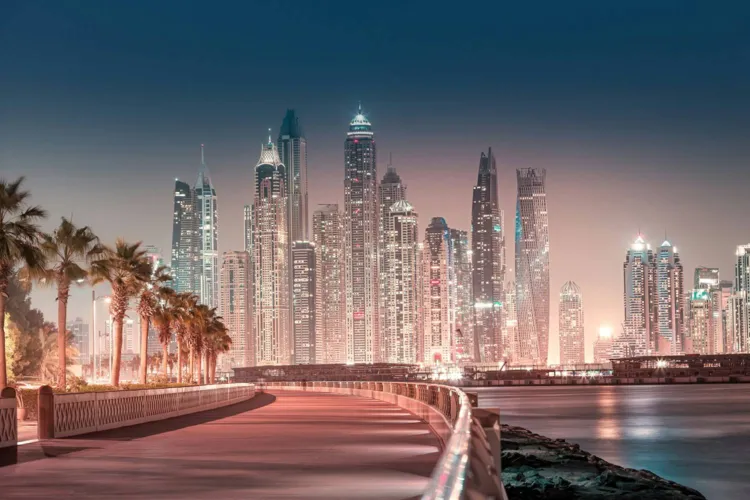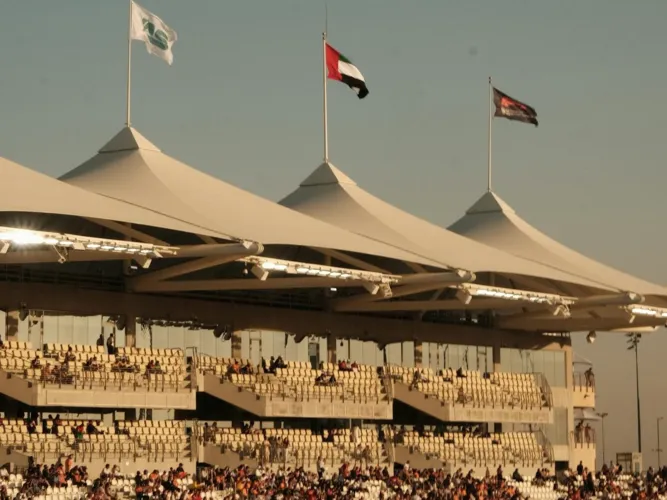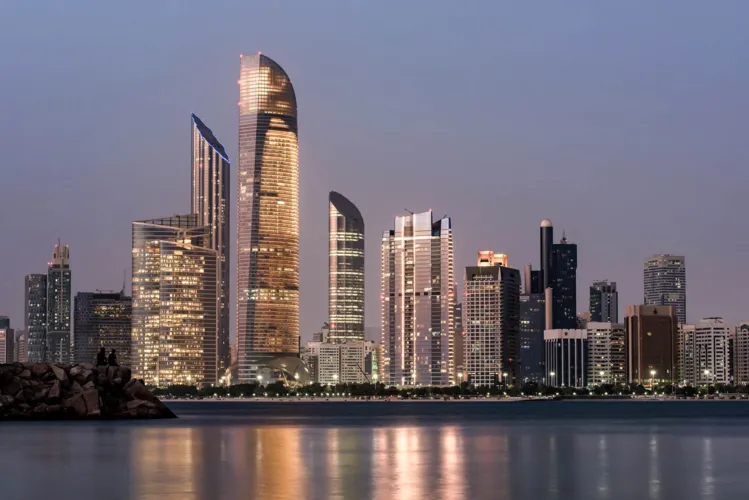In 2025, DHL Group made headlines with a bold commitment: a $570 million investment to scale its operations across the Middle East by 2030. This move isn't just about expanding infrastructure, it's a clear signal that DHL sees the Gulf as the next major hub in global logistics. The DHL Middle East logistics expansion is both a strategic response to growing demand and a bet on the region’s long-term economic momentum.
This announcement came on the heels of record-breaking growth in intra-GCC trade, which surpassed $140 billion in 2024; a 12% increase year-on-year, according to Gulf Cooperation Council reports. DHL’s move is clearly aligned with these regional growth indicators.
DHL Backs the Middle East’s Rise as a Trade Powerhouse
What’s driving such a large investment? Simple. Opportunity. The Gulf is no longer a secondary trade route. Thanks to strong policy reforms, rising consumer markets, and a central location connecting three continents, the region has become a key part of global supply chains.
Amadou Diallo, CEO of DHL Global Forwarding MEA, summed it up well: “This expansion is about staying ahead of trade flows. The Middle East is no longer a crossroads; it’s becoming the destination.”
Governments in Saudi Arabia and the UAE are actively opening up sectors like manufacturing, e-commerce, and clean energy. For logistics companies like DHL, that means new clients, new demand, and a pressing need to deliver faster, greener, and smarter.
According to the UAE Ministry of Economy, the logistics sector contributed over $29 billion to GDP in 2024. Saudi Arabia’s National Transport and Logistics Strategy aims to triple the sector’s contribution to GDP by 2030, making the timing of DHL’s investment even more relevant.
Inside the Investment: Smart Hubs and Seamless Systems
DHL’s $570 million commitment covers its four business units and focuses on building capacity where it counts:
- DHL Express: Modernizing air freight facilities in Jeddah and Dubai, with more direct cargo flights and streamlined customs systems.
- DHL Global Forwarding: Launching freight offices in major trade corridors and introducing electric trucks to reduce emissions. A key highlight: DHL’s partnership with Etihad Rail, enabling cross-border rail freight within the GCC.
- DHL Supply Chain: Setting up high-tech warehouses in Riyadh and Dubai that feature automation, solar power, and smart sortation systems.
- DHL eCommerce: Boosting last-mile delivery through its acquisition of AJEX, giving it deeper access to underserved cities in Saudi Arabia.
Take EZDubai, for instance, a specialized e-commerce zone in Dubai South. DHL’s automated hub there runs on solar energy and processes thousands of parcels daily with minimal human intervention. Meanwhile, in Riyadh, demand for luxury goods and pharmaceuticals is pushing DHL to expand cold-chain capabilities.
Additionally, new tracking platforms will give businesses access to shipment data across customs borders, leveraging AI to anticipate delivery delays or route changes.
UAE and Saudi Arabia Lead the Way
It’s no surprise that DHL is focusing on the UAE and Saudi Arabia, together, they handle more than 70% of the Gulf’s logistics activity.
- In Dubai, DHL is leveraging world-class infrastructure at Al Maktoum International Airport and logistics zones like Jebel Ali and EZDubai to support regional re-exports, especially to Africa and South Asia.
- In Saudi Arabia, Vision 2030 reforms are accelerating growth in sectors like retail and health. DHL is responding with temperature-controlled storage, warehouse automation, and investments in fleet electrification.
Saudi Arabia’s total e-commerce sales reached nearly $12 billion in 2024, with logistics demand expected to grow at a compound annual growth rate (CAGR) of 8.7% through 2028, per estimates by the Saudi Logistics Academy.
This dual-market focus lets DHL serve both regional and global clients more efficiently, while offering scalable logistics platforms that match each country's economic goals.
A Playbook for the Future of Logistics
DHL isn’t just expanding, it’s building a model for other global players. Here’s what sets their strategy apart:
- Integrated service lines: From air cargo to last-mile, every link is connected under a single regional strategy.
- Sustainability at scale: DHL is rolling out electric vehicles, solar-powered facilities, and data tools to optimize carbon use.
- Government alignment: Collaborations with Etihad Rail and acquisitions like AJEX reflect DHL’s deep integration into national logistics visions.
And others are taking not: In 2024, FedEx launched a $350 million hub at Dubai World Central with similar green tech and automation features. DHL’s lead is setting a new standard.
Industry observers point out that DHL’s local investment is not only improving operational agility but reducing customs bottlenecks and delivery fragmentation, two of the most persistent issues in cross-GCC trade.
Faster, Smarter, and More Resilient Supply Chains
What does all this mean for businesses in the region?
- Quicker deliveries: New hubs and direct air links reduce shipping times within the GCC to as little as 1–2 days.
- Lower costs and emissions: Rail freight options via Etihad Rail provide an alternative to long-haul trucking.
- Expanded reach: With AJEX, DHL now reaches Tier 2 and Tier 3 cities in Saudi Arabia—unlocking new e-commerce markets.
- Improved flexibility: Warehouses located closer to customers mean better inventory control and faster order fulfillment.
DHL’s digital tools also give clients real-time visibility, automated customs filing, and predictive insights to improve planning. That’s a big win for regional SMEs, manufacturers, and global shippers alike.
Importantly, DHL is also aligning with sustainability targets. The group has pledged to reach net-zero emissions by 2050, and its Middle East strategy includes deploying over 300 electric delivery vehicles and solar installations covering more than 50,000 square meters of logistics space.
The DHL Middle East logistics expansion is more than a bet: it’s a blueprint. It shows what’s possible when infrastructure meets innovation, and when global scale is matched by local partnerships. As trade lanes continue to shift and customer expectations grow, DHL is positioning the Gulf as a logistics hub ready for the next decade.
Curious about what this means for your business? Market Research Abu Dhabi offers strategic insights on transport, trade, and infrastructure investment. https://marketresearchabudhabi.com/contact-us
FAQs
1. What makes this DHL investment different from past expansions?
It’s comprehensive. Covering every segment from freight to last-mile, and it integrates clean energy, automation, and long-term partnerships like Etihad Rail.
2. How is DHL supporting sustainability in the region?
By introducing electric fleets, solar-powered hubs, and digital routing tools that reduce waste and energy use.
3. What’s in it for local businesses?
Faster shipping, lower logistics costs, better inventory control, and access to new customer segments across the GCC.







